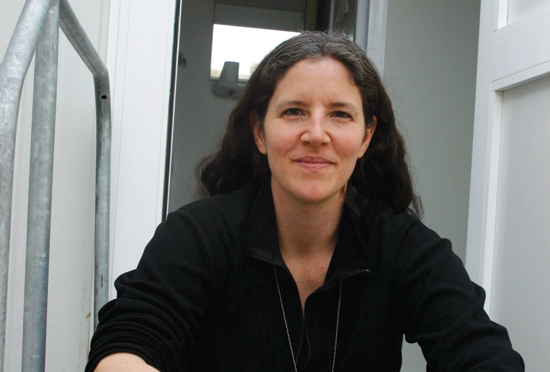True/False Events
True Vision Award

On the one end of the spectrum, we have the modern sound-bitten world of TV journalism, with complex stories boiled down to slogans and humans to cartoons. On the other is a new wave of filmmakers, with Laura Poitras leading the charge, that dedicate themselves to nuanced, provocative explorations of contemporary issues. Poitras immerses herself in crucial events of our time, emerging with innovative, hand-crafted works that simultaneously serve as gorgeous art and essential journalism.
While working as a chef, Poitras began studying film in the late 1980s at the San Francisco Art Institute. Her instructors included avant-garde legends Ernie Gehr and George Kuchar. She then studied political theory at New York's New School for Social Research, working, after hours, as a film editor. Her debut Flag Wars (2003, co-directed with Linda Goode Bryant), though ostensibly about the gentrification of an African-American neighborhood in Columbus, Ohio by largely gay homebuyers, spins a heartbreaking tale of mutual mistrust, misuse of power and broken lines of communication. What could have been a purely topical tale grew into something grander and timeless, thanks to the creativity, attention, patience and care of the filmmakers.
My Country, My Country (2006) explores still more epic themes: betrayal, civil war and global imbalances of power. Poitras spent eight months in Baghdad, following a Sunni doctor in the run-up to Iraq's compromised 2005 national elections. As unembedded filmmaker, Poitras provides the viewer visceral evidence of a country under enormous stress and grief, of days filled with small but constant humiliations, mind-boggling tragedies and unescapable fear and death. "The image can hold this pain," she told one interviewer. With The Oath (2010), Poitras weaves the stories of two men, brothers-in-law, who are united in friendship and a onetime belief in Al Qaeda, but are now separated by chasms both physical and idealogical. Poitras creates a narrative structure as intricate and filled with reversals as a Shakespearean tragedy; critic Dennis Lim described it as going "so far beyond the media's customary thumbnail sketches of terrorists as to be almost disorienting."
With just three films completed, Poitras already has won a host of awards including an Oscar nomination. But her audiences are the real winners: in an age of shrinking, increasingly myopic journalism, her deep and visionary films chart us towards a new way of engaging with nonfiction and serve as a bold challenge to other filmmakers to follow in her footsteps.